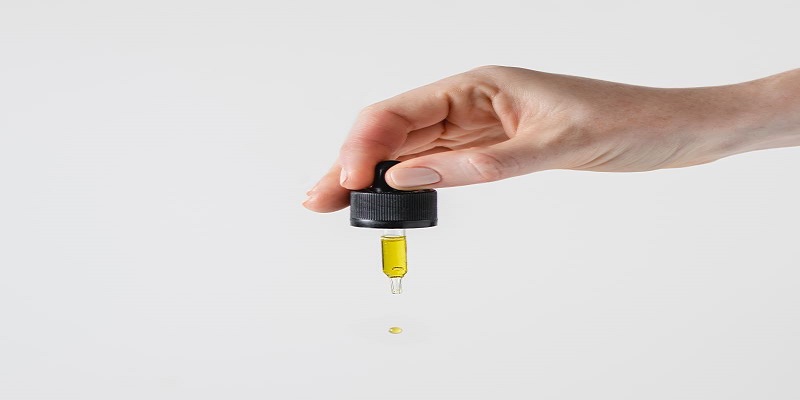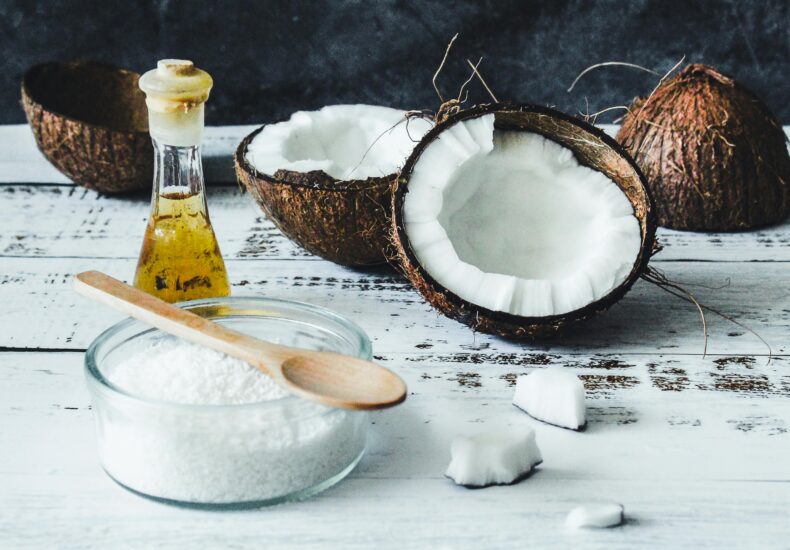
Due to work overload and a stressful lifestyle, many people deal with sleep disturbance. Sleep is often neglected daily, but it is the most important aspect of leading a healthy lifestyle. You may have already heard that sleeping pills and meditation help with sleeping disorders, but today, I’ll tell you the importance of CBD oil for sleep and when to take CBD oil for rest.
What Impact Does CBD Oil Have on Sleep?
Although additional research is needed to thoroughly understand the processes by which CBD eases moderate anxiety, lessens pain, and improves restlessness, anecdotal evidence suggests the advantages may be connected to the interaction between CBD and receptors within the endocannabinoid system (ECS). This is significant since the ECS is crucial in controlling many processes and activities, including memory, mood, pain, and inflammation, as well as sleep and mood regulation.
When to take CBD oil for sleep
Various CBD oil dosages are likely to have multiple effects. Larger doses of CBD may have a soothing effect, while smaller amounts may serve as a stimulant, have a relaxing impact, and promote mental clarity. Considering this, it is generally suggested to begin trying with CBD oil throughout the day while learning about CBD oil’s potential to enhance sleep. To achieve the optimum results when taking it before bed, you can raise the amount based on how your body responds to the initial dose.
Understanding when to take CBD before bed is essential for adding CBD oil into your bedtime routine and to take CBD oil before bed, because the effects do not immediately happen. Many recommend taking CBD an hour or so before bed so it has time to act in the body. For the optimum effectiveness and speed of absorption, CBD oil in tincture form is taken sublingually, which means you lay the oil beneath your tongue and let it sit there for 30 seconds before swallowing.
How much CBD for sleep oil should you take before sleep?
In general, improved sleep is often gained with more significant amounts. CBD can be taken in doses ranging from 40 mg to 160 mg or more before night. Starting with a dose of 60 mg, you can gradually increase or reduce it until you find the right amount.
What is the Best time to take CBD for sleep?
Take CBD at night. 20 minutes after ingesting CBD oil, you will start feeling its effects. For those needing a little more time, we advise taking CBD up to an hour before bedtime to decompress and let go of the day’s tensions.
Why is CBD oil necessary for sleep?
According to research, CBD may help people with various sleep disorders, including insomnia and restless leg syndrome, as well as other conditions known to impact sleep negatively. CBD doesn’t produce the intoxicatingly psychoactive “high” associated with delta-9 tetrahydrocannabinol (THC). The hypothalamus involves several sleep processes, including controlling body temperature and coordinating sleep cycles. Dr. Whitelocke asserts that CBD’s ability to handle stress by interacting with the hypothalamus makes it helpful in helping people who have trouble falling asleep as he goes on to say, “Insomnia results from an overactive stress reaction that spills into a period of rest when we’re not trying to examine conscious trauma. By balancing hormone levels, CBD can stop the dysregulated cycle of stress hormone overactivation and restore balance to the sleep and waking process.

Risks of using CBD before bed
Although Drs. Whitelocke and Strachen agree that CBD is a low-risk treatment and that there are few instances of drug interactions with CBD products, it is still advisable to consult your doctor before beginning a CBD regimen because it may raise liver enzyme levels in those who take drugs that are metabolized by the liver. These medicines consist of:
- Statins
- medications that reduce inflammation, such as ibuprofen and naproxen
- certain anti-hypertensive drugs
- clotting agents
Additionally, some studies indicate that THC might disrupt sleep. Researchers claim that other adverse effects of CBD may occur. Trusted Sources, such as:
- Changes in cell viability resulted in lower fertility in studies using cell cultures.
- P-glycoprotein and other drug transporters’ activity was reduced due to liver-related drug metabolism inhibition.
- It would be clear that CBD interferes with other treatments if these effects on drug delivery and metabolism are proven. In general, additional research is required.
However, it is advisable for anyone who wants to utilize CBD to consult a healthcare professional first. When discussing with your doctor, remember that many CBD products do include THC, sometimes even in trace amounts.
What additional methods exist to enhance sleep?
It may seem impossible to have a good night’s sleep with many factors that can interfere with our sleep. But if you’re having trouble falling asleep, there are several effective sleep-inducing techniques you could try:
- Improve the lighting, temperature, quietness, and comfort in your bedroom.
- Establish a regular bedtime
- Do some daytime exercise
- Before attempting to sleep, concentrate on unwinding and eliminating stress.
- Recognize the signs of sleep disturbances and base your actions on them.
- Reduce alcohol, caffeine, and meal consumption before going to bed.
- Eliminate naps from your everyday schedule.
Should you use CBD oil for sleep?
CBD may improve the quantity and quality of sleep, helping those who have problems with their circadian rhythms by ensuring that the body moves through the regular stages of sleep and REM sleep without being unduly disturbed. But, as with any other medication, CBD may also have some side effects that should be considered when using CBD oil for sleep.
Other aids to treat sleep disorders
Behavioral therapy is a staple of insomnia treatment. Several efficient methods some reliable sources are:
- relaxation strategies
- the use of stimuli control
- therapy that restricts sleep
- slumber hygiene procedures
- cognitive remodeling with paradoxical intention therapy
Some people might still need to take medicine. Doctors may give adults doxepin or controlled-release melatonin. They might also suggest a Z-drug, a type of drug that aids in sleep maintenance. Eszopiclone (Lunesta), zolpidem (Ambien), and zaleplon (Sonata) are a few of them.
Conclusion
As cbd has some reported side effects, Doctors frequently advise behavioral adjustments to treat insomnia and when to take cbd oil for sleep, sometimes in conjunction with prescription medications. Medical professionals are unsure if CBD helps sleep, but some evidence suggests it might prolong it. However, the ideal CBD dosage and method for using it to help sleep need more investigation and research.
FAQs
Can you use sleeping pills with CBD oil?
Consider combining several remedies when you’re having difficulties sleeping and feel frantic about returning to a more regular sleeping pattern. In this situation, you might think about taking CBD oil and a sleeping aid simultaneously, but it’s crucial to determine whether or not this is safe to do. Although further research is required, the information that is now available suggests that CBD may affect the body’s response to drugs.
When to take CBD for sleep?
Each night, CBD oil can be taken for sleep. However, it’s crucial to remember that CBD is still a medicine, and if used too regularly, you risk building up a tolerance and needing a greater dosage to fall asleep. Furthermore, if you suddenly stop taking CBD for sleep and experience withdrawal, this could cause even more sleep difficulties.
Does CBD oil make you sleepy during the day?
Some people who take CBD could feel sleepy afterward. CBD and the patient’s other drugs may interact, causing additional side effects from using CBD.
Does CBD make you tired the next day?
Even though CBD is frequently well tolerated, it can have side effects such as dry mouth, diarrhea, decreased appetite, fatigue, and weariness.










